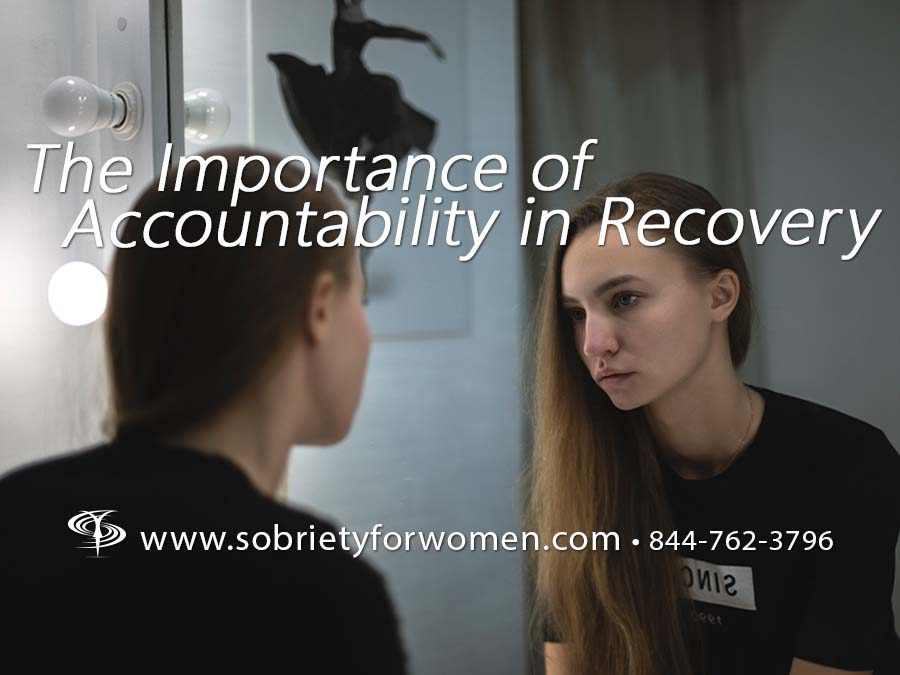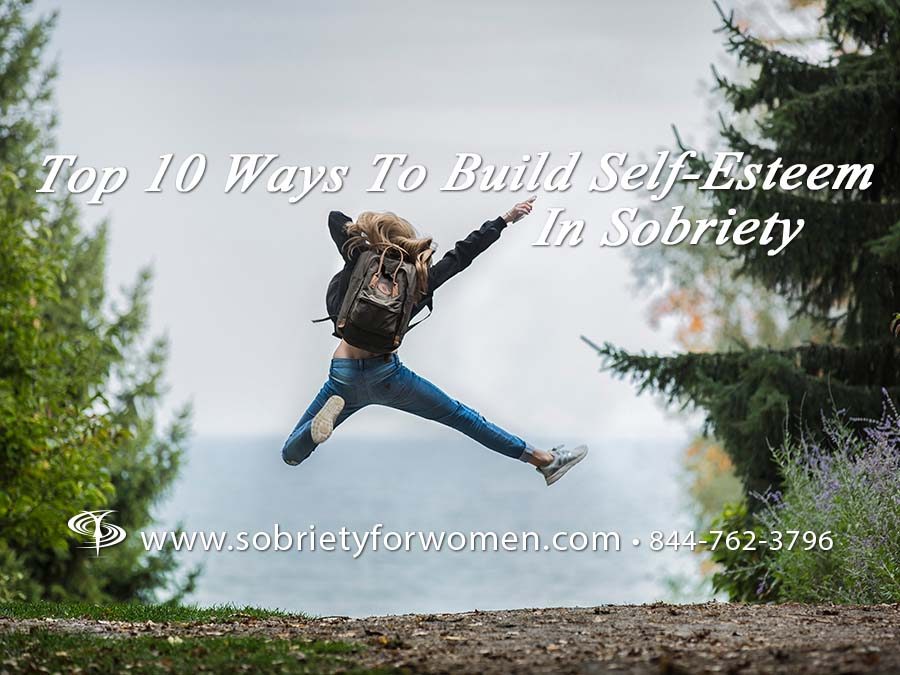
by A Women in Sobriety | May 22, 2014 | Addiction Articles, Benefits of Sobriety
Blaming Others
Before getting help for my addiction, I spent years blaming others for everything. It was always someone else’s fault that I drank and used drugs the way I did. “If what happened to me had happened to you, you’d use drugs like I do,” was pretty much my go to response for everything.
I have heard this same phrase repeated by countless women in recovery. It seems to be a faulty slogan that many of us lived by. Of course, addiction is a disease and this wasn’t the only reason I drank and used drugs. It was a great way to justify my actions and shift the blame on others. This cycle of shifting blame allowed my disease to stay strong for years.
Looking for a women’s treatment center for drugs and alcohol?
The Progression of My Disease

During my years getting high, and before I ever picked up a drug or drink, my disease was progressing. I stopped speaking to “normal” people and my life became hanging out with my drug dealer. As I became less and less accountable to regular people, I also lost any notion of self-accountability. See, addiction is a selfish disease. The only thing I cared about was how and when I’d get drugs.
Want to know more about substance abuse?
Misguided Truth
Finally, I had this misguided belief that there were no consequences to ANY of my actions. Whether it was stealing something or hurting a loved one, the obsession to drink and drug trumped any potential consequences. Mostly, I barely gave consequences a passing thought. I just didn’t care.
Moving Towards Recovery
As a woman takes her first step into recovery, it’s extremely importance that she begin to understand what it actually means to be sober and accountable.
Accountability, sobriety, and honesty are all linked. Really, you can’t have one without the others. While in treatment, you learn to be accountable to your peers and therapists. You can get “honest” with your group about your feelings or a potential mistake. Practicing this kind of honesty is integral to staying sober, because, first and foremost, you must be honest with yourself about being an addict.
Looking to get involved with other women in sobriety?
Continued Accountability
If you decide to work a twelve-step program after drug treatment, you’ll learn to be accountable to your sponsor. Practicing this kind of accountability with your home group and sponsor helps in the long run. Staying sober is about being accountable to yourself and to God as you understand God. You’re making a commitment to yourself to stay sober for the rest of your life, one day at a time. With a sponsor, you’ll learn to set goals and stick to those goals.
Look, as addicts we’re used to running from responsibility. It was avoided at all costs. “I’ll pay that bill tomorrow,” “tomorrow I’ll stop drinking,” “I’ll apologize to my loved ones tomorrow.” Those are just a few examples. It’s important to remember that we can’t get sober alone. With the help of support groups, therapy, and a sponsor we can learn to treat this disease. We can learn to be accountable and productive members of society!

by A Women in Sobriety | May 1, 2014 | Addiction Articles, Benefits of Sobriety
Would I Hire a Women in Recovery?

When you consider hiring a recovering addict or alcoholic, there are going to be concerns. Oh, are there going to be concerns!
Is she reliable? Am I putting anyone in danger? Don’t addicts steal? What if the stress becomes too much? What if she relapses? Will it be my fault?
These are certainly legitimate concerns, but there’s only one make-it-or-break-it question – Do the benefits of hiring a woman in recovery outweigh the risks?
Well, do they?
In my experience, the answer is a resounding yes! My experience is that women who’ve gone to a women’s treatment center understand the magnitude of second (and maybe third) chances. This is true of everyone in recovery, really.
Women in recovery know their sobriety may be considered a risk. They’ve already worked harder than most other applications to reach the point where they’re applying for a job! They know the odds might be slim. So when they DO get a job, they tend to work harder. They take extra care to be more reliable. They work a program of recovery which places a premium on honesty, hard work, and accountability. They have an appreciation for the job which goes well beyond a paycheck!
I’ve found that recovering women take more pride in their work. They value their accomplishments. They’ve worked incredibly hard to even be in a position to become employable.
Recovering alcoholics understand accountability. When mistakes are made, and they always are!, recovering women know how to admit and accept fault. They’ll work immediately and tirelessly to right any wrongs.
Yet another benefit of hiring those in sobriety is their commitment. Many recovering alcoholics put their work and careers ahead of their social lives (yeah, we’re weird like that!). Wile other employees are rushing to happy house, those in recovery have different priorities. Of course, we’re only human and are happy to leave at the end of the workday. Getting to a meeting is much higher on the list than hanging out at a local bar. You can be fairly certain they won’t be trudging into work late and hungover!
Overall, I’d say the benefits of hiring those in recovery far outweigh that possible risks. Besides, I’ve worked with, and likely hired, plenty of lying, cheating, unreliable criminals who weren’t addicts!

by Sally Rosa | Apr 9, 2014 | Addiction Articles, Benefits of Sobriety
The Top 10 Ways to Build Your Self-Esteem
1) Gratitude

Writing a gratitude list everyday can be rewarding. Sometimes, in early-sobriety we’re unaware of the good things in our life. The more you write what you’re grateful for, the more you’ll be grateful for it!
2) Speak Up and Sit in the Front
It’s important to contribute and participate in meetings. Sitting in the front row is one easy way to make yourself more engaged. Other members will start to notice and reach out to you. This’ll happen even more if you begin to share! Sharing and letting others know what you’re going through helps.
3) Exercise

Exercise is important to physical and mental health. It helps with stress relief and is a great way to relieve anxiety. Feeling healthy and fit will boost your self-esteem, guaranteed.
Start by setting small goals so you’re not overwhelmed. After awhile, you’ll notice you can do more and more.
4) Do Something for Someone
Doing small things for people helps you feel better about yourself. My sponsor is fond of saying that if you want self-esteem, you need to do esteem-able acts. Some great examples are:
- Listening to someone
- Asking someone what you can help them with
- Smiling at a stranger
- Praying for someone
5) Say an Affirmation
An affirmation is when you practice positive thinking and self-confidence by saying nice things about yourself. Having a positive attitude about your life produces feelings of self-worth and confidence. Examples of affirmations include:
- I’m beautiful, healthy, brilliant, and tranquil
- I’m guided by spirit who leads me towards what I must know and do
- I’m courageous and I stand up for myself
- Today, I abandon my old habits and take up positive ones
6) Become a Productive Member of Society

Having a job and being a productive builds self-esteem. Simple as that. In active addiction, most addicts were unable to keep a job. Feeling like you’re needed somewhere, and having somewhere to be throughout the week, is fulfilling.
7)Do Service Work
Doing service work is a great contribution to AA or NA and a great way to meet others. Service can include:
- Making coffee
- Setting up chairs
- Giving rides to and from meetings
- Sponsoring others
- Speaking and chairing
8) Replace “I Should Have” With “I Will”
Listening to others and following through with action show others your willingness. It also produces a feeling of accomplishment and self-esteem. Knowing that you’re doing the right thing and following suggestions will make you, and others, proud!
9) Build a Support Network

Going to meetings and related events is a great way to meet people. Giving out your number (remember, women with women and men with men!) is a surefire way to reach out. Getting to know your fellow addicts and alcoholics allows you to confide in others with issues going on, help with daily life, and have fun!
10) Take Inventory Each Day
Doing a personal inventory is SO important! Every night, before you go to sleep (or even throughout the day) reflect for a minute about your emotions and what’s going on inside. This helps you realize your motives, fears, positive attributes, and negative attributes. This allows you to reflect and do better tomorrow.
Taking a daily inventory also gives you the opportunity to make amends. Here’s a list of helpful questions to ask while doing an inventory:
- How was I resentful?
- How was I selfish?
- How was I afraid?
- Do I owe an apology?
- Was I unkind?
- What could I have done better?
- What can I do for others?
- Who did I help?
- What did I accomplish?
- What am I grateful for?
- Who needs my prayers?

by Fiona Stockard | Sep 18, 2013 | Benefits of Sobriety
I Didn’t See That Happening!

1) Sober Fun Doesn’t Exist
Before getting sober, I thought it would go something like this – “oh, yeah, this is great. I get to sit around and drink coffee all day. And meditate. I love meditating. Sike! My life is OVER.” That’s really what I thought recovery was like. After being sober a few years, I’ve found most other people tend to believe this. How far from the truth!
After I got a little bit of sober-time under my belt, I began to have confidence again. I started to live, really live, life for the first time. I’ve been to more shows, concerts, events, parties, vacations, and adventures in sobriety than I ever did before. I have more fun on an A1A drive, near the beach on a Tuesday night, blasting music, than I ever did at clubs and bars, dealing with the other hot messes in the crowd.
If you think your social life is over just because you put down the drink and the drugs, well, just wait and see how fun life becomes.
2) I’ll Never Amount To Anything
Okay, before I came into recovery life sucked. I was a college dropout and fired from every job I had. Was this due to my addiction? Well, if you asked me a few years ago, I’d have said nope. I’d have said my boss was crazy. The company sucked. YOLO. Blah, blah, blah. I’d have said whatever excuse I could come up with to justify the gross injected that occurred in my professional careers.
The fact is, my drug and alcohol problems led me to make poor life choices. Drugs and booze led me to be a horrible employee, co-worker, and student. So, when I entered recovery I assumed that’s how things were always going to be.
What I didn’t know is that once the drugs and alcohol were taken out of the situation, I became better in each of those roles! I’ve held the same job for over three-and-a-half years. I’ve even grown in the company! For me, that’s crazy. The idea that someone like me, a down and out junkie, can’t change their life is ridiculous. The sky is the limit, ladies and gentlemen.
3) I Only Hurt Myself, What’s The Big Deal?
This was my favorite misconception. Okay, everyone calm down, I thought to myself in treatment. I drank and got high by myself. I didn’t hurt that many people. Chill, people!
See, I’m self-centered to the bone marrow. I didn’t think about how many times my roommates had to pick my drunk a** up from the bar. I didn’t occur to me how many times I drove drunk and hit people and stationary objects. I’m incredibly lucky I didn’t seriously hurt anyone!
I didn’t think about my poor mom. She used to wait up and see if I’d come home. I didn’t think about my boyfriend who would take me to dinner, only to watch me pass out. I didn’t think about my boss who I manipulated and took advantage of.
No, I didn’t think about anyone, other than myself. I thought my drinking and drug use only hurt me. Turns out, my actions effected everyone I came into contact with. I learned that after being sober for, oh…a few days.
4) I Can Totally Do This On My Own, I Got It
Who can relate to this – you have no idea who I am or what I’ve through. If you knew my life, you’d understand why I do the things I do.
I certainly did. I thought I was a big shot the first time I tried to get sober. I thought everyone trying to help me just didn’t understand. I thought I was so different and that I’d conquer addiction all on my own. It wasn’t until I suffered repeated defeats, that I gave in and accepted the help I was offered. After I gave in and accepted help, my life began to get better! Who would’ve thought? I began to make friends. Not the type of friends you meet in bars and clubs, but legitimate friends. I became friends with people who show up and offer emotional support. Friends who taught me how to handle life sober, with integrity and grace. I know now, without a doubt, that I couldn’t (and wouldn’t!) do this deal alone. I totally don’t “got this.”
There are SO many resources available for addicts and alcoholics. There are Intensive Outpatient Programs, Inpatient Facilities, and Twelve-Step Fellowships, just to name a few.
5) God? Ha! That’s Not Going to Happen
When I walked into the rooms of recovery, I didn’t accept help. I didn’t accept it from people or from God. I could sort of wrap my head around going to meetings and working steps. I learned to like coffee. Praying to this God creature, though? Thanks, but no thanks! I thought I’d entered a cult.
After being beaten into a state of reasonableness, I got a sponsor. They took me through the Big Book. They took me to meetings where people all said the same thing. They said if I wanted to have long-term sobriety, well, I was going to have to develop a relationship with God.
Time heals all wounds. The longer I stuck around, the more work I did, the more I started to actually believe in some sort of God. This happened in spite of myself. Today, my relationship with God is, without a doubt, the most important relationship I have in my life. When I’m connected to God, I’m spiritually fit. During these times, my life is better than I could have ever imagined. I’m happy and whole. I don’t obsess about drugs or alcohol and my life takes on new meaning.
6) My Family Is Never Going To Trust Me Again
I’d done so much lying, cheating, and stealing in active addiction, that I destroyed every relationship I had. This included my entire family. They’d been there for me time and time again. They spent years helping me pick up the pieces when my life would shatter (and it always did). Finally, they had enough and din’t want to support my harmful choices. When I got sober, I know this was it. This was beyond my last chance.
I knew my family wouldn’t be there if I threw everything away. I believed the damage I’d done was never going to be fixed. Even in my delusional self-centeredness, I saw how much I’d hurt them.
In recovery, I learned how to be a family member again. I learned to show up. I learned to be the child my parents always knew I could be. I learned to be a sibling to my sister. I learned to be a cousin and a granddaughter. I learned to be trusted again. It took some time, don’t get it twisted. It took time for these relationships to develop. However, when they did develop they became better and stronger and contained more love than ever before.
7) I Just Want To Be Happy
When I finally admitted complete defeat, I was one hell of a broken soul. I was miserable, alone, and unhappy. You know what? Unhappy’s an understatement. If you’d ask me to write down the one wish I had, I would’ve simply written “to be happy.”
As far back as I could remember, my birthday wish was always to be happy. I didn’t think I’d ever lose the anxiety (and pain, depression, hatred, and self-pity) I felt 24/7.
After being sober a few months, I learned some tools. I took suggestions. I made friends with other sober people. In turn, these people helped to transform my ideas about recovery. I learned that sobriety is possible. I learned that I could be happy and grateful. I learned that life is beautiful and I could be part of life, if I decided to take a few simple actions.
Today, life is beautiful. If you asked me to write a wish, I wouldn’t write “to be happy.” I don’t have to hope for it anymore. I’d write “for other sick and suffering addicts to experience what sobriety can really be like.”










